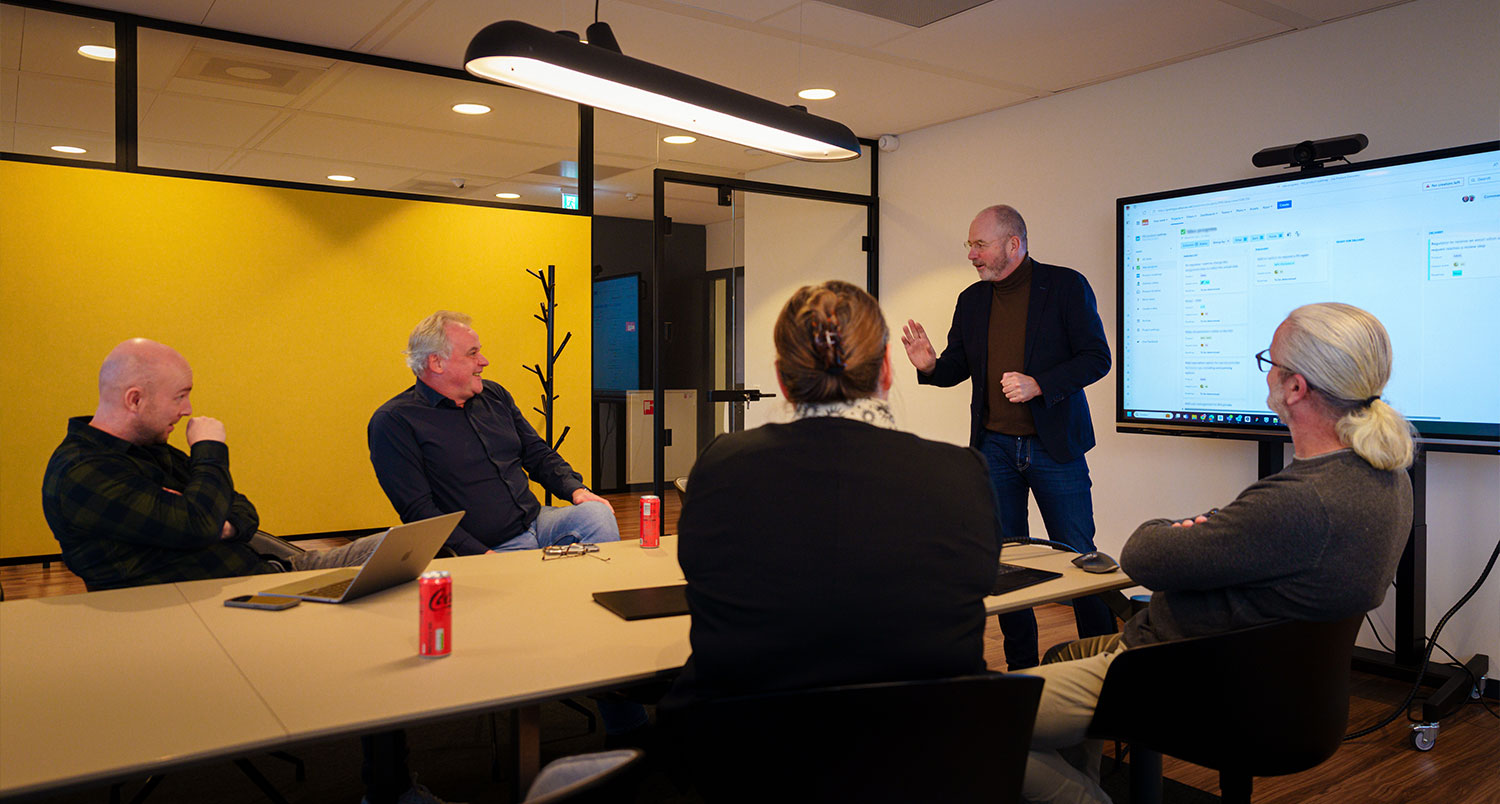Road to success: how we make your project work

Implementing a numbering solution may seem complex – but with the right partner, it doesn’t have to be. As the PMP® certified Program Manager at PXS, I’m managing projects across the globe. We’ve successfully delivered solutions in more than 40 countries. Let me walk you through our proven method!
I will cover:How milestones shape your numbering project
We structure every numbering project with milestones: clear checkpoints to track progress and address issues. A milestone clusters several activities, and completion marks the next step in the project. We listed some key milestones below.

1. Specification gathering
After the contract is signed, we define exactly what to implement. Specification gathering involves finalizing all requirements affecting scope, risks and resources. This includes a project plan, testing plans, onboarding documentation and final business rules. Alongside system requirements and general processes, we define the roles and responsibilities for each stakeholder.
2. Implementation
With the specifications established, we configure and implement the numbering solution. Our off the shelf solutions can be implemented within weeks. As our Customer Success Stories of Ireland and Belgium prove, this results in a fast time-to-market.
First, we will deliver an Acceptance Platform. This environment is an exact copy of the future Production environment, and can be used by all stakeholders for integration, User Acceptance testing and training. These testing plans are established during Specification Gathering.
3. Training
Next up is training – all stakeholders should be educated to use and integrate the solution properly. Our training is typically split into two parts: an administrative and technical one. Administrative training is about the functionalities of the web interface and key processes, but also explains how to troubleshoot and test properly. Technical training involves integrating and configuring your solution.

4. Testing
After implementation and training your personnel, it’s time to ensure everything works as intended. The testing plans established during Specification Gathering can be put into practice on the Acceptance Platform. This environment is used for all testing activities before live end-to-end testing (on the Production Platform).
Testing includes these steps:- All interfaces have to be connected and accessible.
2. This is followed by User Acceptance Testing, to determine if the solution functions as agreed.
3. In case of number portability: the operators engage in porting testing (both sunny and rainy day scenarios)
4. In case of number portability: the operators test call and SMS routing, involving domestic and international traffic, A2P traffic, roaming, and fixed to mobile calls (and vice versa).
5. Finally, all stakeholders perform end-to-end testing in the Production Platform covering all relevant processes and systems integrated with the solution.
Throughout the project, all stakeholders should actively report their progress to track progress and identify issues fast. Our project managers advise on progress during working group or project managers meetings, and the Customer Success team ensures a successful onboarding to our platforms and provides support during integration and testing.
5. Launch & after care
After the launch of your solution, our team keeps a close eye on the performance. Through a product development roadmap, we continuously improve functionalities and performance.
A launch is typically accompanied by an awareness campaign, depending on the type of service. In case of number portability, a campaign could be launched to inform consumers of the possibilities. Throughout the project, we advise on the best approach and can refer you to experts to set up the campaign.
How we solve common project challenges
Although a well-structured project prevents many issues, unforeseen circumstances can occur. Drawing from our experience, we’ve identified some common obstacles and how to solve them.
Scope of the project changes
The specification gathering phase serves an important purpose. It establishes the scope of the project to prevent surprises that could result in extra costs or delays. Although it should be avoided, there are legitimate reasons for a change of scope. A stakeholder could leave the market or legislations may change. Our team has the skills and experience to anticipate this, and our solutions have the flexibility to be adjusted accordingly.

Unavailability or a change of teams
Numbering solutions are not implemented from one day or another. A change of teams may occur, or certain team members could drop out. To anticipate this, we actively meet to discuss progress, keep the project plan up-to-date, and ensure each stakeholder appoints two representatives.
Solve testing challenges
When testing number portability, there are at least two operators required to run the porting process. This might be an issue when not all operators are in the same stage of implementation. That’s why we always set up a dummy operator, to be used by a real operator for independent testing.
To account for all testing scenarios, it’s of paramount importance that the operator’s environment matches the live environment. For that reason, we prioritize an identical test (Acceptance) and live (Production) environment. The same should be applied to the operator’s domain.
Delays caused by one or more stakeholders
Projects with many stakeholders are prone to delays, if not managed well. This can be prevented by setting clear deliverables and realistic deadlines (with sanctions when timelines aren’t met) and scheduling one-to-one-meetings with each stakeholder to monitor progress. Since delays can’t always be avoided, it’s better to anticipate them than to be caught off guard.
Why a structured approach is the key to success
Every obstacle in a project is manageable when addressed proactively and timely. For that reason, we structure our project through milestones and a project plan. This approach makes it possible to address issues before they become a real problem. When challenges do occur, our team and products have the expertise and flexibility to adjust accordingly.
Would you like to know more about our way of working, and what it means for your specific use case? Please don’t hesitate to contact us!

Latest Posts
Explore our knowledge base

Road to success: how we make your project work
We’ve successfully delivered solutions in more than 40 countries. Let us walk you through our proven method!
Read more
Future-ready numbering services: all benefits of the cloud for your business
In this blog, we discuss all opportunities and benefits of the cloud for numbering services: for a faster time to market and an effective operation.
Read more
Why we proudly support Mercy Ships, the hospital fleet providing free healthcare
PXS proudly supports Mercy Ships, a fleet of mobile hospitals sailing around the world to provide healthcare to people in need.
Read moreGet in control of your numbers
Get started with numbering services today! Contact one of our experts to discuss your business case.